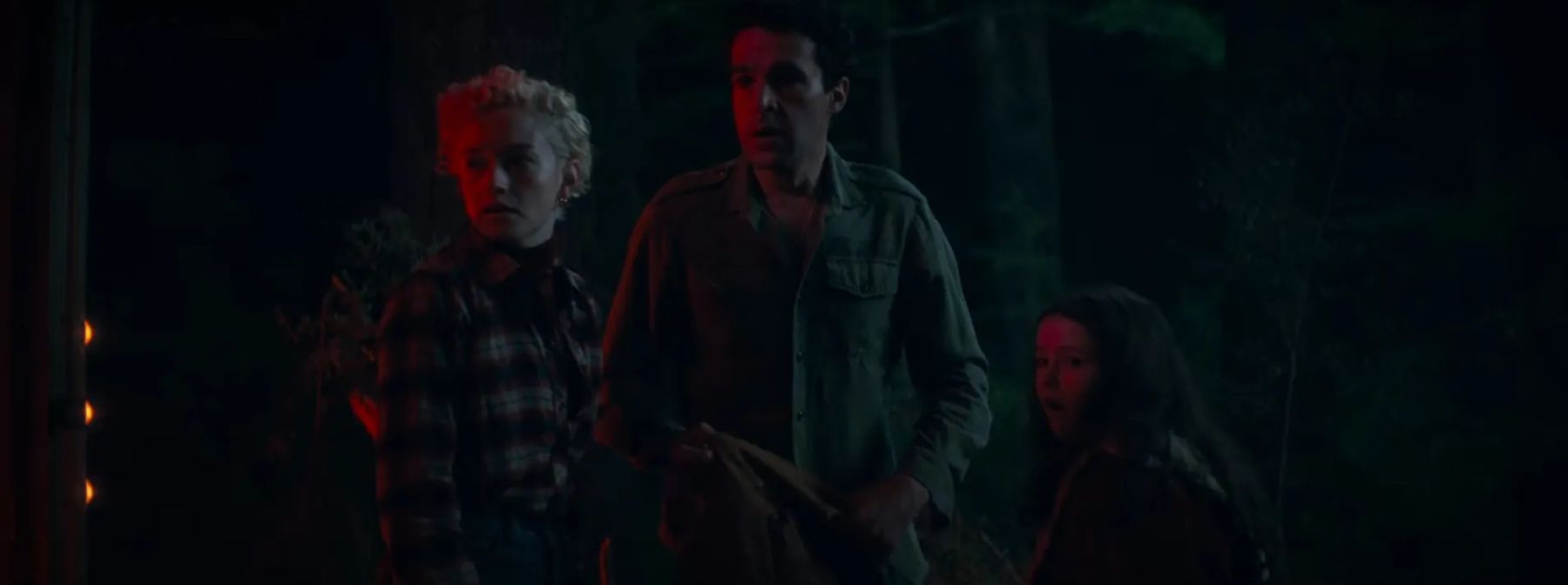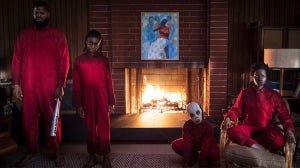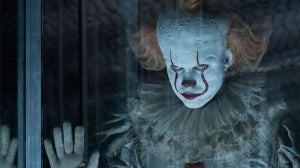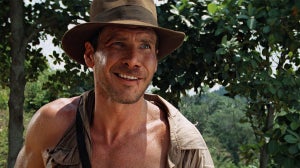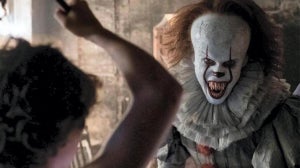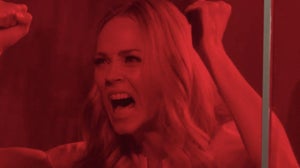
He explained to Zavvi: “With The Invisible Man, there was only one idea presenting itself to me when I was writing it; the horror of domestic abuse and to be stalked and harassed by somebody. I started writing the first draft of Wolf Man during COVID, and it became clear this couldn’t be about just one thing, as there were so many things going through my head at the time.
“This was a story about fatherhood and how you parent versus your own parents, it’s about terminal illness and disease, it’s about a marriage and how to make one last. I decided I didn’t have to pick just one theme to explore, because the world felt like a mess in 2020 – it was discombobulating, and didn’t feel linear at all.
“It was a cathartic experience to write and put everything that was on my mind at the time into the script.”
Christopher Abbott stars as Blake, the man feted to become the titular monster, who drags his wife (Julia Garner) and daughter (Matilda Firth) to rural Oregon where he’s inherited his father’s farm. Before they’ve even set foot in the house, disaster strikes when a werewolf attacks Blake, and over the course of a night, we see him transform as the family tears apart.
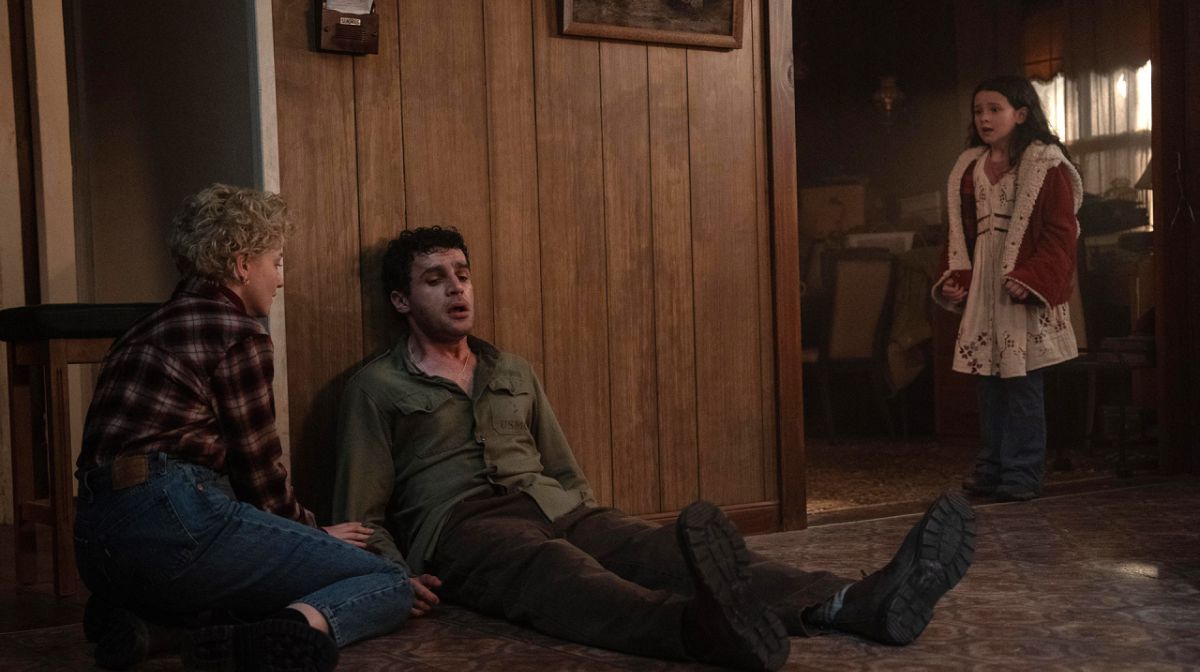
The inciting incident in the original 1941 Wolf Man was also down to an estranged father/son relationship, with Lon Chaney Jr’s protagonist attacked by a werewolf when visiting his dad in rural Wales, following his brother’s death. It’s not kept exactly the same in this reboot, but Whannell explained to us that he was consciously trying to use the original film as a blueprint more than he did with The Invisible Man.
“The Invisible Man is embodied by his lack of presence, which gives you a lot of creative freedom. If you’re designing a new Wolverine costume, for example, you’ll get a lot of eyes on you scrutinising your every move, but you can’t with someone who isn’t actually there – they can’t complain that the empty corner of a room is done incorrectly!
“The Wolf Man is very visual within the public imagination; the transformation is the clearest image people have in their mind when they think about it. Because it is inherently more visual, I felt the need to look more to the original film and cling to the mythology, rather than depart completely from everything.”
However, there was one area where Whannell aimed to differentiate his film from its werewolf predecessors, by depicting the drama from his monster’s point of view. The sound design becomes increasingly over-sensitive alongside its protagonist, with the vision getting frequently blurred, showing us the quite literal communication breakdown between a husband and wife as their marriage falls apart.
The director explained that he was thinking of the sound design whilst writing and extensively researched the senses of wolves and dogs so that his monster’s transformation would be palpably grounded within reality.
“As I went into that research, I realised we can never completely know how animals are seeing and hearing the world. They can’t understand human language, but it’s said that dogs can understand around 10 words, which are usually commands, and there’s also a very specific vision range they see in, which is what we tried to design the colour palette of the film around.
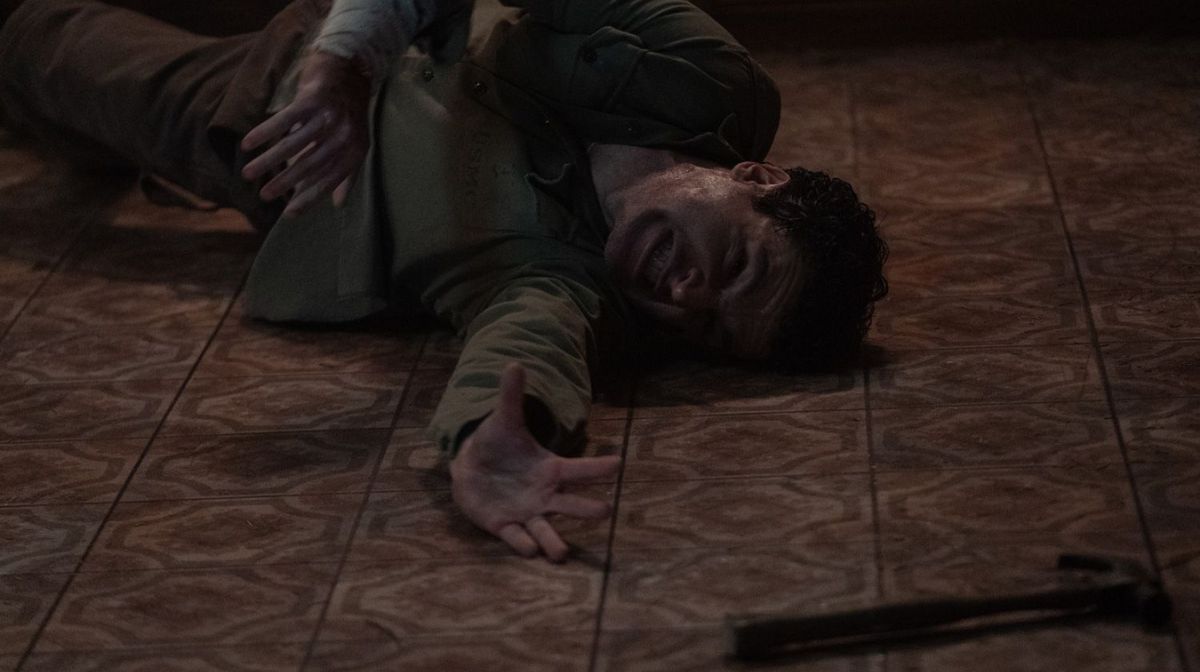
“I also found myself listening to a lot of audio from the animal kingdom which was recorded with different microphones, so you would hear different sounds the way other animals would. As humans, we hear the sound of a cricket from a distant perspective, but it sounds in far closer range from a dog or a wolf’s perspective – it was fascinating, and I knew it would make this movie a feast for the sound design.”
The other way he tried to “ground” the story was by divorcing it from wider mythology about werewolves. There is opening text alluding to folklore from Native American culture, but that’s the first and last time he tries to connect his tale to a lineage of spooky stories reaching back centuries.
“I wanted to keep it mysterious, because I wanted the part of the world where the film is set to feel very cut off from society. It’s like another world with its own rules and language, and I didn’t want to dump a lot of exposition about the origin of this monster on top of that.
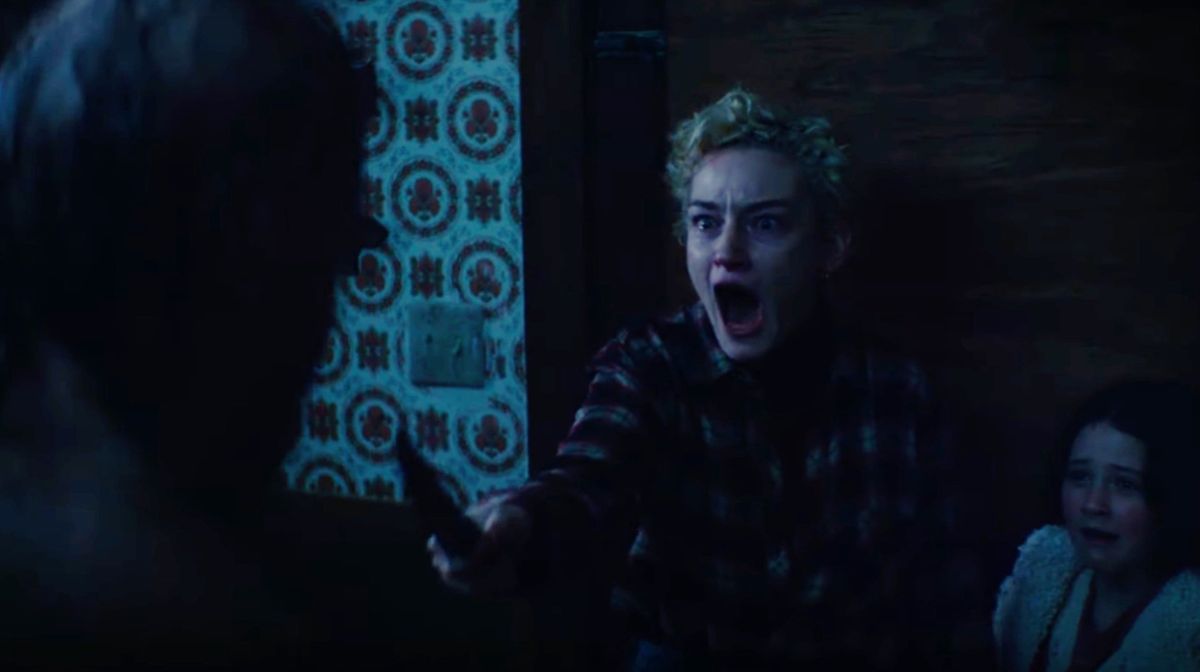
“However, I know that a lot of different cultures have their own version of this legend, and it’s interesting to me how similar myths pop up around the world even when they’re not connected. The idea of a human transforming into an animal is really common, and it was nice to be able to nod to that and open this story highlighting that this is not a new thing.”
One of Whannell’s biggest inspirations was David Cronenberg’s remake of The Fly, due to how the director used his monster transformation as an allegory for terminal disease, and seeing a loved one rapidly change for the worse before your very eyes.
“The allegory of disease felt like the right bedrock to build the film on. I’d seen friends of mine suffer from terminal illnesses and pass away, and it’s a horrific thing to see – it's a slow-motion horror story, where you see a degenerative illness slowly take away their everyday abilities.
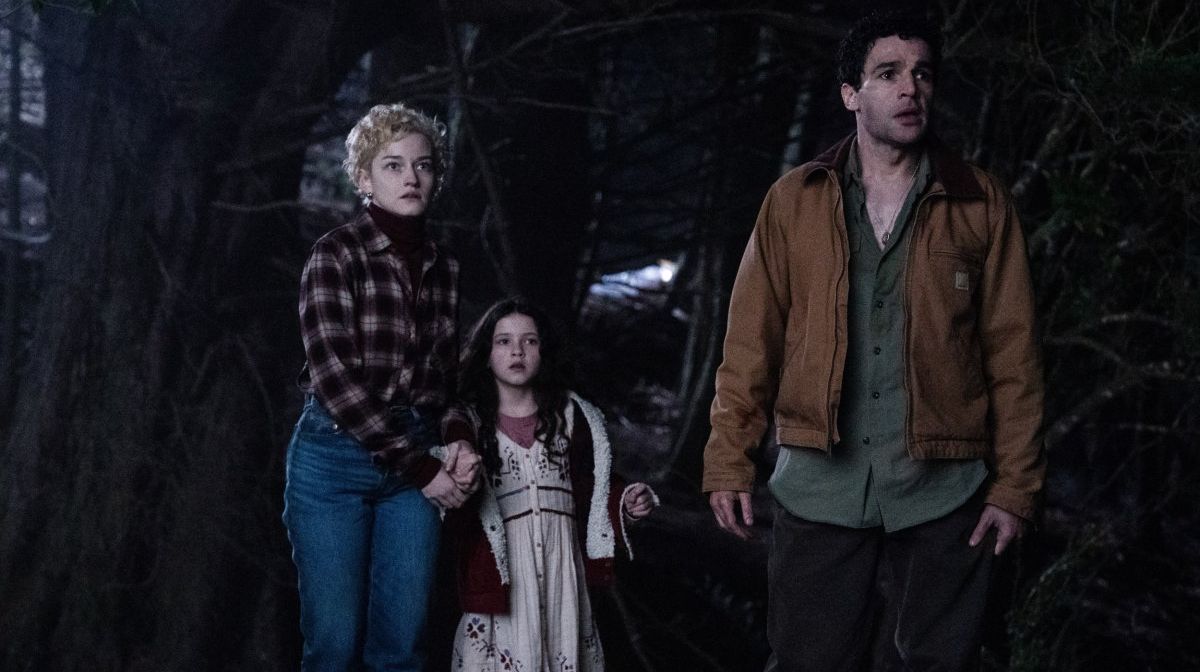
“It’s a nightmare I wanted to speak to in this movie, as my brother-in-law passed away very close to when we shot it, and it was a very shocking thing. The emotions we feel when we lose people close to us are very much infused into the film’s DNA; it’s very raw, and that’s what the movie is about more than anything.
“It sounds similar to what Cronenberg was doing, but I can only hope to approach the greatness of his movie!”
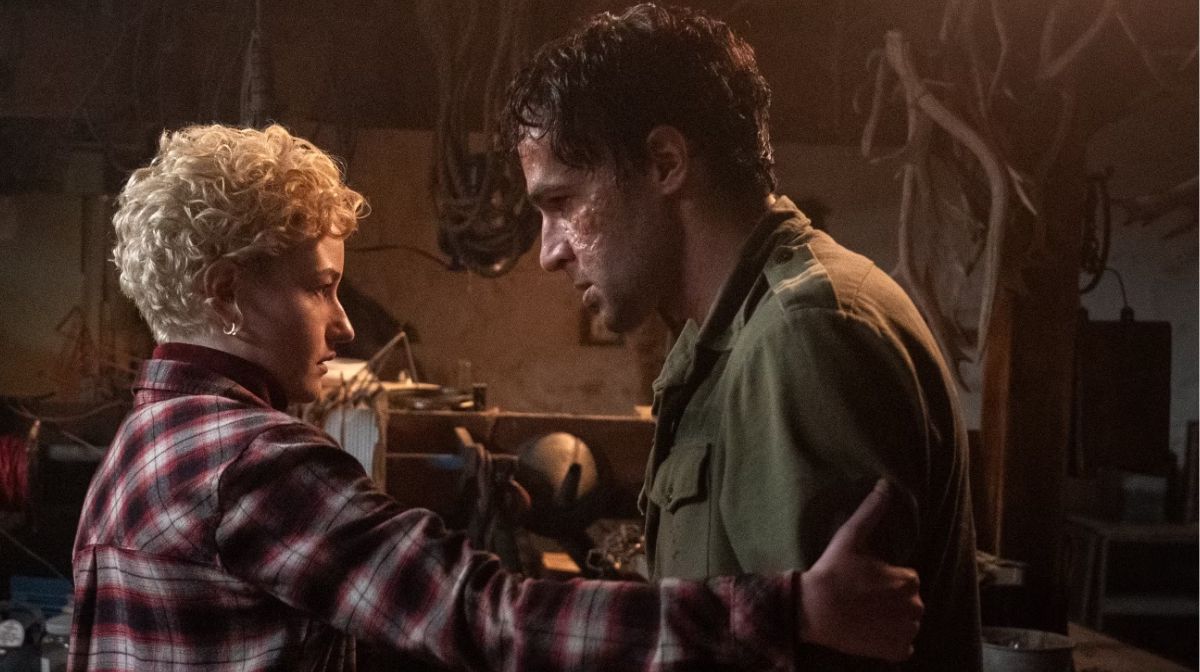
He was hesitant to make it at first, but now that Wolf Man is about to enter the world, is Whannell going to close out a trilogy of Universal Monster movies?
“I’ll hold the world ransom – if you make this successful, I’ll do another monster movie! I love this world and these monsters, and it seems like they’re having a resurgence right now, with Nosferatu and Del Toro’s Frankenstein coming out.
“Monsters are good metaphors, and it feels like it’s their time to unleash them in an already unstable world...”
Wolf Man is released in UK cinemas on Friday, 17th January.
